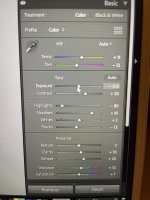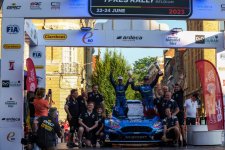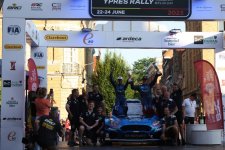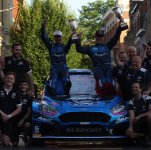Hi
Not sure where to post this one. I don't usually take photos of people, mainly machines and cars. While I was doing some rally stuff for an agency a month or 2 ago, I had to do the podium (again not normally something I'd do).
I set my focus to eye tracking but that didn't work well so i used tracking and spot mode on one of the 2 people's faces.
Every photo of every car has come out like this - I am not quite sure what I did wrong. Granted its a big crop but the faces are really really lacking detail and definition while the trophy (in front of them) is so clear you can get read the writing clearly, and the french flag on the car at least at the same distance or further behind the people seems well focused as well.... In fact all the faces look soft where ever they are in the frame in relation to the driver
The image is quite a big crop granted (original 100% crop and overall image below) and was taken on an EOS R5 with a EF 24-105 F4L (original mk1) @ 1/400s, F9 ISO800.
I went F9 to try and ensure I had the DOF in case the focus was slightly missed.
Any advice appreciated!

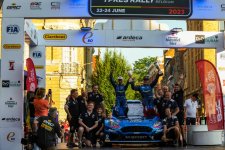
Not sure where to post this one. I don't usually take photos of people, mainly machines and cars. While I was doing some rally stuff for an agency a month or 2 ago, I had to do the podium (again not normally something I'd do).
I set my focus to eye tracking but that didn't work well so i used tracking and spot mode on one of the 2 people's faces.
Every photo of every car has come out like this - I am not quite sure what I did wrong. Granted its a big crop but the faces are really really lacking detail and definition while the trophy (in front of them) is so clear you can get read the writing clearly, and the french flag on the car at least at the same distance or further behind the people seems well focused as well.... In fact all the faces look soft where ever they are in the frame in relation to the driver
The image is quite a big crop granted (original 100% crop and overall image below) and was taken on an EOS R5 with a EF 24-105 F4L (original mk1) @ 1/400s, F9 ISO800.
I went F9 to try and ensure I had the DOF in case the focus was slightly missed.
Any advice appreciated!


Last edited:


